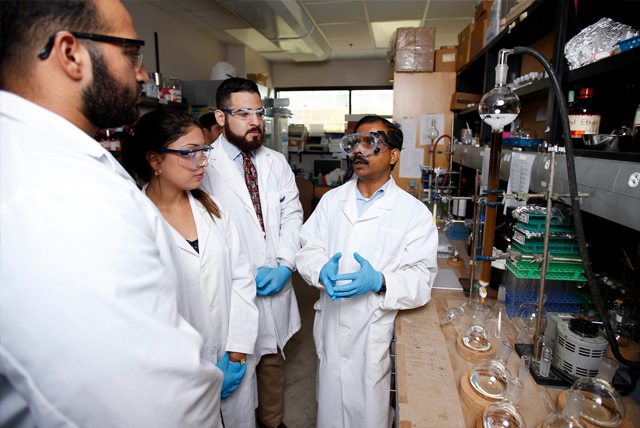Document Type
Article
Publication Date
5-21-2019
Abstract
Growth factors are found in most of the organisms including insects, humans, plants, etc. The name ‘growth factors’ became known when the substances were active in stimulating the growth of cells and tissues. Growth factors are regulatory species (signaling molecules mainly proteins) that are generated by the body which function in binding to receptors on the cell surface and are required to stimulate the growth in living responsive cells by triggering cellular proliferation and/or cellular differentiation pathways, as well as by regulating gene transcription in the nucleus. They are quite versatile by promoting cell growth and act in a paracrine, retrocrine, autocrine, or juxtacrine signaling pathways. Cellular division is stimulated by growth factors in different cell types, while others can be specific to a cell type. Every growth factor binds to a specific receptor on the cellular surface. Cytokines are a family of growth factors that help in stimulating the movement of cells towards inflammatory sites, trauma, and infection. Abnormal regulation and production of growth factors and cytokines tends to cause various diseases that include, but are not limited to, cancer, diabetes, liver fibrosis, and bronchopulmonary dysplasia. A critical discussion with a focus on the diverse role and abundance of front-line growth factors in human body is presented. Bio-pharmacological relationships between growth factors with several diseases have also been incorporated in this article.
Recommended Citation
Alexandre, E., & Bandyopadhyay, D. (2019). Growth Factors in the Human Body: A Conceptual Update. Cohesive Journal of Microbiology & Infectious Disease, 2(5). https://doi.org/10.31031/CJMI.2019.02.000546
Creative Commons License

This work is licensed under a Creative Commons Attribution 4.0 International License.
Publication Title
Cohesive Journal of Microbiology & Infectious Disease
DOI
10.31031/CJMI.2019.02.000546



Comments
Copyright Debasish Bandyopadhyay.